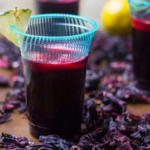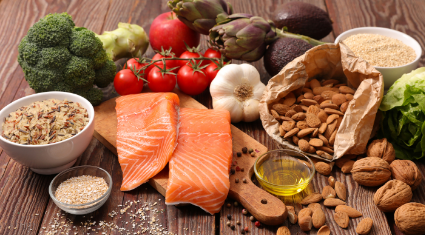
This article provides our dietician-approved 7-day Nigerian food time table for ulcer patients.
In Nigeria, stomach ulcers are a common health challenge, and the number of patients keeps increasing daily. That’s why our certified dietitian has put together the Nigerian food timetable for ulcer patients, listing the best foods that ulcer patients can eat without triggering symptoms.
As you read on, you’ll discover a 7-day meal plan for ulcers tailored to the Nigerian diet. The best part? All these foods are easily available in Nigerian markets!
Diet plays a crucial role in soothing ulcer pain and promoting healing, and this guide will help you make the right food choices.
Below is our dietician-approved Nigeria food timetable for ulcer patients. Just copy and paste it in your file and save it as a PDF.
| Days of The Week | Breakfast | Lunch | Dinner |
| Monday | Vegetable Omelette with whole wheat bread and beverage ( Cabbage juice) | Steamed Moi-moi and Vegetables | Boiled yam with Scrambled eggs and Vegetables. |
| Tuesday | Sandwich with Avocado and Coconut water. | Vegetable soup with lean beef and pounded yam. | Grilled fish and unripe plantain with steamed broccoli. |
| Wednesday | Toasted bread with scrambled eggs, carrots and green beans with ginger tea | Chicken vegetable stir fry with Basmati rice | Baked turkey breast, Sweet potatoes and sauteed green beans, bell pepper, carrots and cabbage sauce. |
| Thursday | A bowl of fruit salad ( Avocado, eggs, banana, watermelon) | Okra/Ogbono soup with Fish/Chicken breasts and pounded yam. | Jollof rice and steamed vegetables with lean beef. |
| Friday | Greek yoghurt with banana and almond slices and berries. | Vegetable stew with grilled chicken and boiled unripe plantain | A bowl of fruit salad ( Cucumber, watermelon and bananas |
| Saturday | Baked Sweet potatoes/yam with Olive oil and steamed veggies with Tiger nut drink | Steamed Moi-moi with fish and garnished with coleslaw | Non-spicy Chicken breasts pepper soup and yam |
| Sunday | Fonio porridge/Acha pudding with almond milk and honey | Unripe plantain porridge and fish | Vegetable smoothie ( cabbage, cucumber, ginger, spinach) and toasted bread. |
A stomach ulcer is a lesion or mucous membrane that causes tissue deterioration in the gastrointestinal tract. The symptoms of ulcers are nausea, pain, bleeding, heartburn, itching etc.
Peptic ulcer is the most common type of ulcer found in Nigeria. It is subdivided into Gastric ulcer which affects the stomach and Duodenal ulcer which affects the small intestine. Infection with the helicobacter pylori (H. pylori) bacterium or regular use of non-steroidal anti-inflammatory medicines (NSAIDs) are the two main causes of peptic ulcers.
In 2020, the World Health Organization (WHO) released data that showed deaths from Peptic Ulcers in Nigeria were about 5,846. This made Nigeria rank 31 in the world rankings of countries ravaged by Peptic ulcer. The United States of America records 4 million deaths every year according to Havard health publishers. It is estimated that 1 in 10 persons is at risk of Peptic ulcer in the United States.
A peptic ulcer is curable. With proper treatment, they can heal within 4-8 weeks. Lifestyle changes in the area of food and medications have been used to treat many patients over the years.
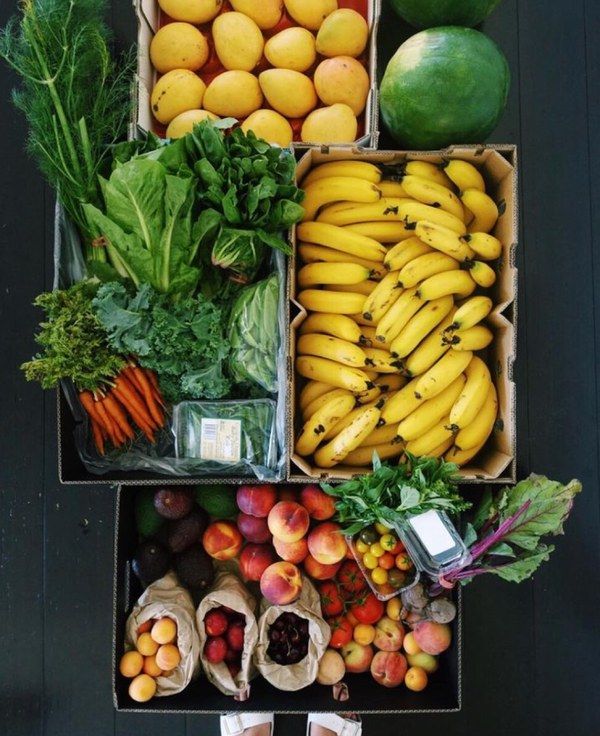
Whether you are a sufferer seeking relief or a carer helping a loved one, it is worthy noting that a well-balanced diet is crucial for ulcer patients because it can help support the healing process, manage symptoms, and promote overall health.
This is how diet can affect ulcer symptoms and promote healing:
Certain foods and beverages can irritate the stomach lining and worsen ulcer symptoms. These may include spicy foods, acidic foods (like citrus fruits and tomatoes), caffeine, alcohol, and carbonated drinks. Avoiding these irritants can help reduce pain, burning sensation, and discomfort associated with ulcers.
Excessive stomach acid production can contribute to ulcer formation and exacerbate symptoms. While diet alone may not cause ulcers, consuming a diet that promotes excessive acid production can worsen symptoms. It is advisable to reduce the intake of foods that stimulate acid production, such as caffeine, chocolate, fatty foods, and processed foods.
A diet rich in nutrients is essential for ulcer healing. Adequate protein intake is crucial for tissue repair, so including lean sources of protein such as chicken, fish, tofu, or legumes can aid the healing process. Consuming foods high in zinc (found in seafood, meat, nuts, and whole grains) can also support the healing of ulcers.
Dietary fibre plays a role in maintaining digestive health and preventing constipation. It is recommended to consume a moderate amount of fibre for ulcer patients. Foods high in soluble fibre, like oats, bananas, and cooked vegetables, can help soothe the digestive tract and improve bowel movements without causing excessive strain on the stomach.
Including sources of healthy fats in the diet (avocados, olive oil, and nuts) can have anti-inflammatory properties and may help reduce inflammation in the digestive tract. This can contribute to symptom relief.
Every individual may have specific trigger foods that worsen their ulcer symptoms. It’s important to identify and avoid these trigger foods through a process of trial and error. Keeping a food diary and noting any symptoms after consuming certain foods can help pinpoint personal triggers.
Staying hydrated is important for overall health and can help promote healing. Drinking enough water throughout the day can prevent dehydration, aid digestion, and support the body’s natural healing processes.
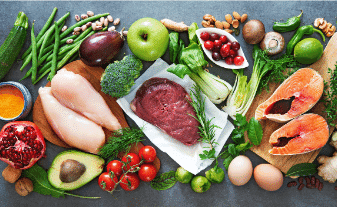
Below is the list of Ulcer-friendly foods you can add to your daily meal plan for ulcers:
These low-acid fruits are considered ulcer-friendly fruits. These include Bananas, Pawpaw, Apples, Pears, Watermelon, Mangoes and Avocados.
When selecting non-irritating vegetables for ulcer patients, it is generally best to choose cooked or steamed vegetables, as they tend to be easier to digest.
Some non-irritating vegetables that are suitable for ulcer patients include Leafy greens like Broccoli which contain certain phytochemicals that have been proven to fight the H. Pylori induced ulcers. Others include Spinach, Lettuce, Pumpkin, water leaves, Carrots, Potatoes, Green beans, Cabbage and Cucumbers.
These are protein sources that are relatively low in fat content. Lean proteins are often recommended for various health conditions, including ulcers, as they are easier to digest and less likely to cause discomfort or worsen symptoms. Lean proteins are one of the best ulcer-friendly foods in Nigeria. You can consider these sources:
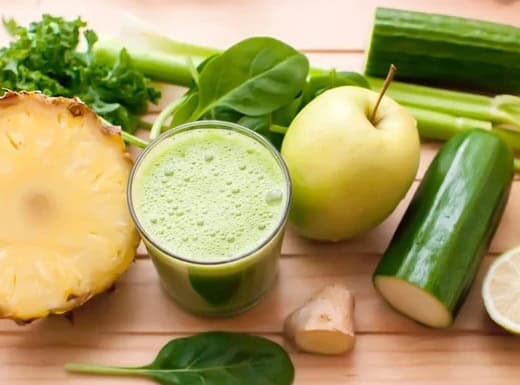
Incorporating healthy fats like Olive oil which has been tested and proven to eradicate H. Pylori into daily meals can be beneficial for overall health without aggravating ulcers. Some healthy fat options that are generally well-tolerated by individuals with ulcers include:
Choosing complex carbohydrates over simple carbohydrates is important because complex carbohydrates as part of a balanced diet provide sustained energy, promote overall health, and contribute to better management of conditions like ulcers, diabetes, and weight control.
Examples of complex carbohydrates include whole grains (whole wheat, oats, brown rice), legumes (e.g., lentils, green beans, beans), starchy vegetables (sweet potatoes), and fibrous vegetables (broccoli, Brussels sprouts).
When selecting carbohydrate sources for individuals with ulcers, ulcer-friendly options that are gentle on the stomach and less likely to aggravate symptoms are advised. Examples include:
Suitable milk substitutes for lactose-sensitive ulcer patients.
For ulcer patients who are lactose-sensitive, there are several milk substitutes available that can be suitable options. These alternatives can provide similar nutritional benefits without causing discomfort:
In Nigeria, certain herbal teas are traditionally believed to have potential healing properties for ulcers. While scientific evidence may be limited, these herbs have been used in traditional medicine for their perceived benefits. You could try:
Other Soothing beverages you should add to your daily diet plan for ulcer include:
READ ALSO:

For ulcer patients in Nigeria, it’s generally advisable to avoid or limit the consumption of highly acidic fruits that can potentially irritate the stomach lining and worsen symptoms. Some fruits to steer clear of due to their acidity include:
The potential alternatives to these high-acid fruits are Bananas, Watermelon, Mangoes, Apples, Avocados etc.
Spicy foods are known to worsen ulcer symptoms due to several reasons:
Alcohol can irritate the stomach and excessive consumption of alcohol has been linked to worsen Peptic ulcer conditions according to a study in 2017.
Greasy foods, particularly those high in unhealthy fats, can aggravate ulcers. While there is limited direct research specifically focused on the impact of greasy foods on ulcers, there are several reasons why they are generally advised to be avoided or limited for individuals with ulcers. Greasy foods can irritate the stomach lining, delay gastric emptying, increase acid reflux risk, and exacerbate inflammation.
When it comes to cooking the types of foods for Ulcer patients, Several healthier options are available. These methods and substitutions help reduce the consumption of unhealthy fats and decrease the risk of aggravating ulcer symptoms.
Some of the healthier options include:
The connection between caffeine, carbonation, and ulcer irritation is related to their potential to increase stomach acid production and irritate the stomach lining, potentially worsening ulcer symptoms. For individuals with ulcers, it is generally recommended to limit or avoid caffeine and carbonated beverages to help manage symptoms and promote healing.
Opting for non-caffeinated, non-carbonated alternatives can be beneficial, such as herbal teas, water, diluted fruit juices, or other non-irritating beverages.
There are several types of foods for ulcer patients which can be eaten with caution and moderation. Do know that portion control and regular eating schedules can help manage symptoms, balance stomach acid, support healing, stabilize blood sugar levels, and maintain a healthy weight.
Eating smaller, well-balanced meals throughout the day can help prevent overeating, which normally leads to discomfort and increased pressure on the stomach.
An ulcer is an open sore in the lining of an organ or tissue in the body. The most common type of ulcer is the peptic ulcer, which occurs in the stomach or small intestine. Most of the peptic ulcers are caused by a bacterial infection called Helicobacter pylori (H. pylori). H. pylori is found in the stomachs of about half of the world’s population. Another cause of peptic ulcers is the use of nonsteroidal anti-inflammatory drugs (NSAIDs).
If you have a peptic ulcer, it’s important to Talk to a Doctor for more personalized guidance on how to go about your diet. Treatment can help you heal your ulcer and prevent it from coming back.
References
Alberta Health Services. (2022). Types of Peptic ulcer
World health rankings. (2020). Peptic Ulcer disease Nigeria
Pubmed. (2017). Role of Sulforaphane in Protection of Gastrointestinal Tract Against H. pylori and NSAID-Induced Oxidative Stress
Pubmed. (2017). Risk Factors for the Presence of Symptoms in Peptic Ulcer Disease
Harvard health Publishing. (2014). Peptic Ulcer
Pubmed. (2012). Assessment of Helicobacter pylori eradication by virgin olive oil
Pubmed. (2008). Modulation of Helicobacter pylori colonization with cranberry juice and Lactobacillus johnsonii La1 in children
healthcareOctober 17, 2025
healthcareSeptember 10, 2025
healthcareAugust 28, 2023
healthcareAugust 28, 2023
healthcareFebruary 27, 2025
healthcareAugust 20, 2025






